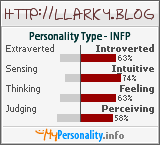
"SIRE
We, the workers and inhabitants of St Petersburg, of various estates, our wives, our children, and our aged, helpless parents, come to THEE, O SIRE to seek justice and protection. We are impoverished; we are oppressed, overburdened with excessive toil, contemptuously treated . . . We are suffocating in despotism and lawlessness. O SIRE we have no strength left, and our endurance is at an end. We have reached that frightful moment when death is better than the prolongation of our unbearable sufferings . . ."
On 3—8 January 1905, when 120,000 workers went on strike in St Petersburg and began to speak about going to the Tsar in order to 'seek truth and justice', Gapon took up their cause. Encouraged by the Liberation Movement, he drew up a list of demands to be presented to the Tsar in a mass demonstration scheduled for the following Sunday. On 7 January the government ordered Gapon to call off the march and posted notices in the city centre warning of 'resolute measures' against any gatherings on the streets. Aware of the imminent tragedy, Gorky led a delegation of intellectuals to the offices of Witte and Mirsky in a vain effort to get them to negotiate with the demonstrators. But the government, which continued to entertain the illusion that it could control Gapon, was confident that force would not be required. Nicholas thought so little of the danger that he even left the capital for his palace at Tsarskoe Selo and another quiet weekend of country walks and games of dominoes. But by then the workers were far too determined to be put off by simple prohibitions.
As the column approached the Narva Gates it was suddenly charged by a squadron of cavalry. Some of the marchers scattered but others continued to advance towards the lines of infantry, whose rifles were pointing directly at them. Two warning salvoes were fired into the air, and then at close range a third volley was aimed at the unarmed crowd. People screamed and fell to the ground but the soldiers, now panicking themselves, continued to fire steadily into the mass of people. Forty people were killed and hundreds wounded as they tried to flee. Gapon was knocked down in the rush. But he got up and, staring in
disbelief at the carnage around him, was heard to say over and over again: 'There is no God any longer. There is no Tsar.'
There were similar massacres in other parts of the city. At the Troitsky Bridge, near the Peter and Paul Fortress, the marchers were mown down by gunfire and sabred by the Cossack cavalry. Gorky, who was in the crowd, recalls the death of one worker:
The dragoon circled round him and, shrieking like a woman, waved his sabre in the air . . . Swooping down from his dancing horse ... he slashed him across the face, cutting him open from the eyes to the chin. I remember the strangely enlarged eyes of the worker and . . . the murderer's face, blushed from the cold and excitement, his teeth clenched in a grin and the hairs of his moustache standing up on his elevated lip. Brandishing his tarnished shaft of steel he let out another shriek and, with a wheeze, spat at the dead man through his teeth.
- A people's tragedy

No hay comentarios:
Publicar un comentario